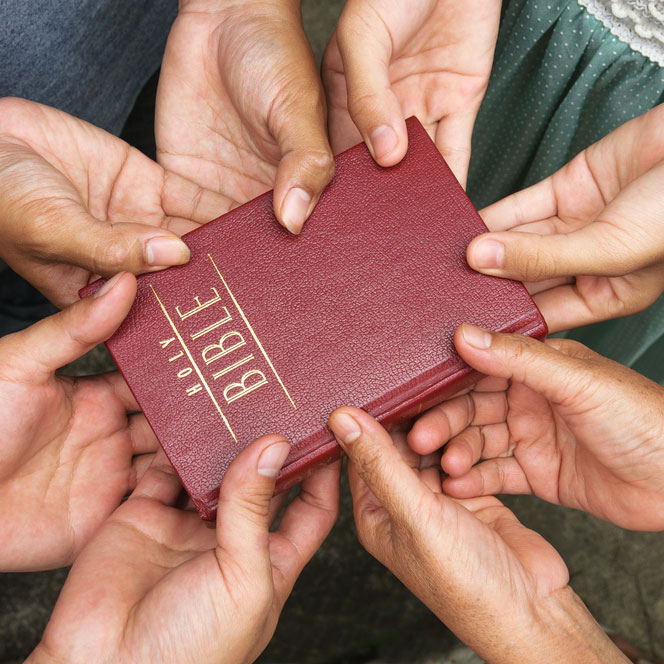Mary Ann Weakley has carved out a unique journey for herself—one that has taken her through a Christian education, a convent, and marriage—and her journey hasn’t stopped there. Weakley’s eclectic career choices have led her to life as an educator and an award-winning memoirist.
Weakley began her religious education at St. Mary’s Academy, a Catholic boarding school, and then moved on to become a nun at the Benedictine Sisters of St. Mary Monastery. While there, she earned her Bachelor of Science degree at Marycrest College and then her Master of Education at the University of Illinois, Champaign-Urbana. Weakley would spend twenty years of her life at the convent and as a teacher at a private Christian school, before making the difficult decision to leave the monastery to begin a different life.
In her time since leaving the convent, Weakley has worked as a school principal, has written featured newspaper columns, has appeared on the Christian Television Network, and began her own interior design business. In June 2014, Weakley published her first book Monastery to Matrimony, A Woman’s Journey, a memoir which chronicles her time as a Benedictine nun through her choice to leave and live a religious life through marriage and Christian education. Her book went on to win second place award in the Royal Purple Literary Awards Competition at the Florida Writers Association Conference in September, 2014.
Read our full interview with Mary Ann Weakley to find out how her experience attending and teaching at a religious institution has brought her success as an award-winning memoirist who inspires, comforts, and educates others.
Tell us more about your education and background. What led you to join a convent and begin teaching at a private Christian school?
I attended eight years of public school before going to St. Mary’s Academy, a Catholic high school. My interest in joining the convent developed at St. Mary’s. The exemplary life led by the Sisters who taught me inspired me to follow their path and devote my life in service to God through teaching.
How did your education prepare you for your time as a teacher in a religious institution? Can you tell us more about your responsibilities in that role?
My Catholic education in high school and in college led me to value a life dedicated to education. Sisters of Humility at Marycrest College were dynamic teachers, selfless women, inspiring mentors. I gained my love for teaching business at Marycrest. That education gave me a solid foundation for becoming a member of the Business Department at St. Mary’s Academy. My position at the boarding school included being a Dorm Prefect of sophomore girls. Later, I became Dean of Girls (after school hours disciplinarian for the entire school). After that I taught business classes at Alleman High School, Rock Island, IL. Before teaching at St. Mary’s Academy, I taught primary and middle grades in Catholic schools in Illinois.
Tell us more about your career pursuits after leaving the Benedictine convent. How did your religious education help prepare you for more secular undertakings?
After leaving the convent, I found a job as a Curriculum Planner at St. Viator High School, Arlington Heights, IL. I eventually was promoted to Assistant Principal in charge of curriculum and teaching staff.
After I married, my husband and I moved to Tennessee where I began my own business in Interior Design. My religious training, academic training in business, and teaching experience were all instrumental in preparing me to manage my own successful design business.
How has that experience shaped your current and future aspirations?
The combination of all my experiences gave me confidence, initiative, determination, and follow-through in all aspects of my life. With that background, I then pursued another interest and latent talent of writing, resulting in my book, Monastery to Matrimony, A Woman’s Journey. I currently use my teaching skills in presentations to groups on writing and publishing.
What misconceptions do you think people have about receiving a religious education or becoming a teacher in a Christian school?
Misconceptions about receiving a religious education as a student are two-fold: one is that it is too strict, and two, that it is all about religion. As for teaching in a Christian school, I think teachers believe, and rightly so, that the pay is comparatively low. It takes real dedication to teaching to sacrifice wages that would allow them to live a better lifestyle. The reward comes with teaching in a disciplined environment with faculty and students who believe in and appreciate a good education. Learning is a priority to staff and students.
Do you think someone who is teaching students at a religious school necessarily needs to practice that religion herself/himself?
I do not believe that someone teaching students at a religious school needs to practice that religion, unless they are teaching religion classes. At the schools where I worked, there could be teachers of math, history, science, etc. who were not Catholics, and there were some who were Catholic but did not practice the Catholic religion. The important thing is that they are Christian.
How do you connect to people who are starting out on a similar faith journey? What advice do you give them?
If they are pursuing a faith journey toward becoming a nun, I would suggest they visit different communities to become acquainted with their mission. The focus of each community is different. It would not be wise to enter a community that only worked with the elderly if one could not handle that. Or do not enter a teaching community if you prefer nursing.
Which types of students do you feel are ideal for jobs in religious education? Which skills and qualities would you say help to contribute to a student’s success?
For a student to be a good teacher, it is important that they have a curiosity for learning. Students who enjoy sharing their knowledge and helping others might be good candidates for teaching.
What advice do you have for students pursuing Christian education? What are the realities of pursuing a career in Christian education, and how can students prepare themselves for the challenges?
Students pursuing Christian education need to understand that as a teacher, they must have a love of children, love of teaching, patience, an understanding that not all students learn the same way, fairness, sense of humor, and thorough knowledge and love of their subject matter.





